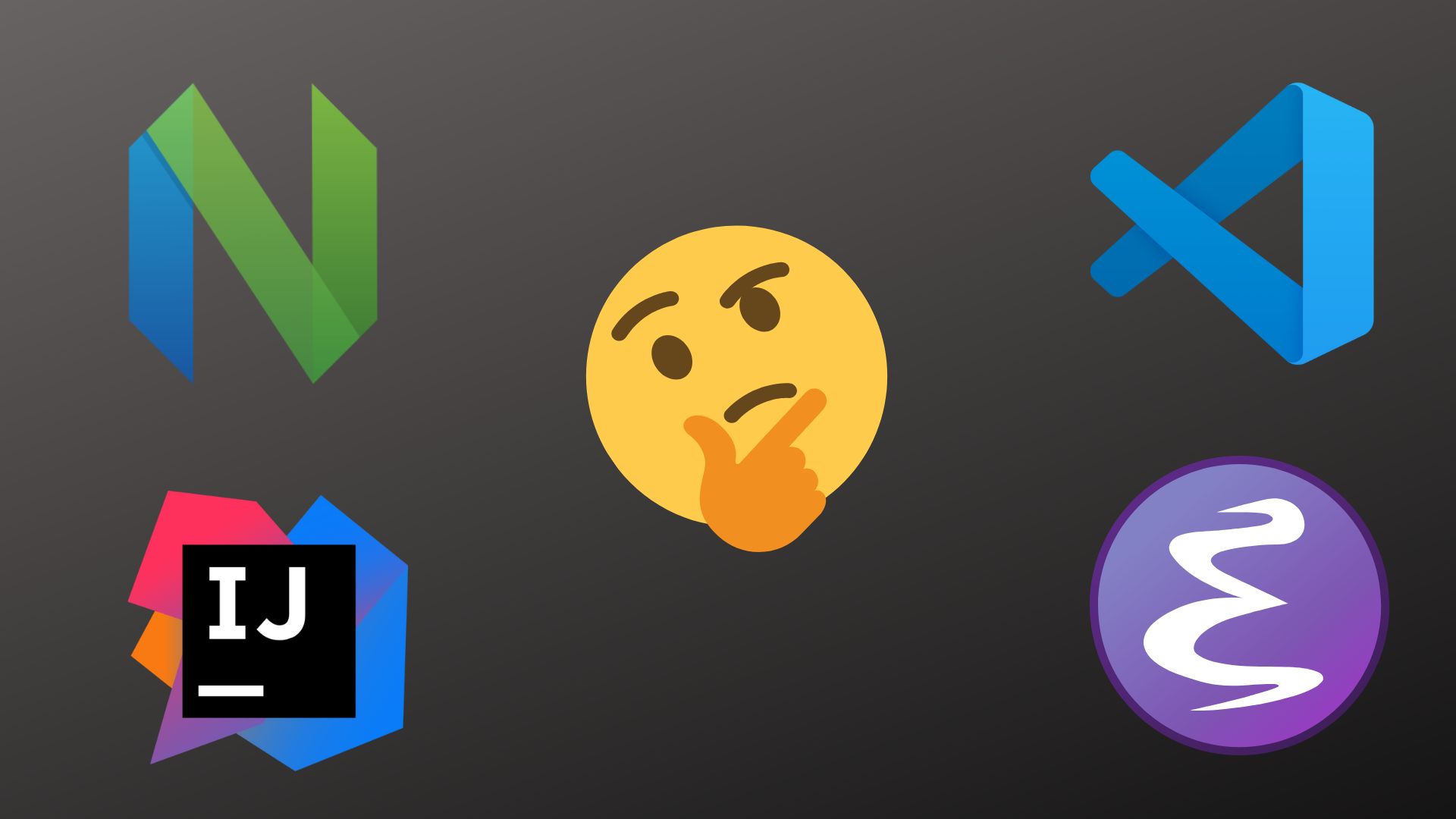If there’s one thing that never fails to make me roll my eyes, it’s the endless debate over code editors. You know what I’m talking about - those heated arguments where developers passionately defend their chosen editor as if it were the holy grail of coding.
Let me tell you something: it’s all nonsense.
Think about it. We’re all different, right? We have different coding styles, different projects, different ways of thinking. So why on earth would we expect one single editor to rule them all? It’s like arguing that there’s only one correct way to cut a sandwich(okay it’s diagonally but you get my point).
What really gets me is how much time and energy people waste on these arguments. Imagine if we channeled all that passion into actually writing code, or learning new skills, or contributing to open-source projects. We could be building amazing things instead of bickering over text editors.
Here’s what I think really matters: productivity. Find the tools that make you the most productive. Maybe that’s a different editor for each language you work with. Maybe it’s a highly customized setup of a single editor. For example, I use Neovim for anything “scripty” like python, bash, golang, cpp, etc. And for everything frontend related, like Flutter, React, I use VSCode. VSCode is unparalleled in terms of anything related to UI.
The point is, it’s about what works for you, not what someone else swears by.
Now, I know some of you might be thinking, “But what about Emacs and Vim? Aren’t they supposed to be the ultimate editors?” Well, let me share a few thoughts on that.
First off, no one should ever tell you what you should use. If you’re happy with Visual Studio Code, stick with it! Microsoft has done an incredible job with it. The UI is beautiful, the Marketplace is a goldmine, and don’t even get me started on how well it works with WSL. Plus, they invented LSP, which is now everywhere, including Vim and Emacs. That’s pretty cool in my book.
But here’s the thing about Emacs and Vim - they change the way you think about text editing. You stop treating code as pieces of characters, but objects like words, sentences, lines, paragraphs, things between parantheses, quotes, etc. Once you discover their power, you might wonder how you ever coded without them. I can’t really explain why they’re so good (believe me, I’ve tried), but if you put in the time to learn them, you might just have your mind blown.
That said, they’re definitely not for everyone. Learning Emacs or Vim is like climbing a mountain. It takes time, perseverance, and a willingness to be less productive for a while as you learn. I’ve seen plenty of people give up because it was just too frustrating at first.
The point is, whether you’re Team VSCode, Team Emacs, Team Vim, or Team Whatever-Else, it doesn’t matter. What matters is that you’re comfortable and productive with your tools.
And let’s not forget how quickly technology evolves. That editor you’re defending tooth and nail today? It might be old news tomorrow. There’s always something new on the horizon, and if you’re too busy defending your favorite editor, you might miss out on the next big thing that could revolutionize your workflow.
You know what I love about our field? The diversity. We have so many options, so many tools at our disposal. That’s not a problem to be solved - it’s a strength to be celebrated. Different editors drive innovation and competition, and that’s good for all of us.
So the next time you find yourself getting drawn into one of these pointless debates, take a step back. Remember that the best code editor isn’t the one that wins internet arguments - it’s the one that helps you write great code efficiently. Everything else is just noise.
Now, if you’ll excuse me, I’m going to get back to actually writing some code. You know, the thing we’re all supposed to be doing instead of arguing about our tools.
